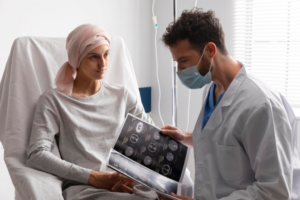Introduction:
Welcome to a dialogue on one of the bold gear inside the fight against most cancers: screening. Cancer, a complex and often devastating sickness, influences tens of millions of lives worldwide. However, amidst the demanding situations posed by using most cancers, There exists an effective weapon that can stumble on the disorder in its early degrees or maybe save it altogether: cancer screening. In this article, we’re going to explore the significance of most cancer screening, the numerous screening strategies available, and how they empower people to manipulate their fitness and well-being.
Early Detection Saves Lives

Cancer screening performs a pivotal function in early detection, permitting healthcare companies to discover most cancers at their earliest and most treatable degrees. By detecting most cancers earlier than signs occur, screening assessments provide people with the possibility for early intervention. Doubtlessly enhancing remedy results and growing survival rates. Numerous research studies have confirmed the effectiveness of cancer screening in lowering mortality charges and improving long-term prognosis, underscoring its importance in combating most cancers.
Types of Cancer Screening
Cancer screening encompasses loads of assessments designed to hit upon most cancers or precancerous changes in the frame. Some common kinds of cancer screening encompass:
Mammography:
Mammograms are X-ray assessments used to hit upon breast cancer in its early degrees, regularly before signs and symptoms expand. Regular mammograms are endorsed for women starting at age 40 or in advance for those with a family record of breast cancer.
Colonoscopy:
A colonoscopy is a procedure that allows healthcare providers to examine the inside of the colon and rectum for signs of colorectal cancer or precancerous polyps. Screening for colorectal cancer typically begins at age 50, though people with a family history of the disorder might also need to start screening in advance.
Pap Smear:
Pap smears, also called Pap tests, are used to detect cervical cancer by gathering cells from the cervix for examination under a microscope. Regular Pap smears are encouraged for women starting at age 21 and should be completed every few years, depending on character chance elements.
Prostate-Specific Antigen (PSA) Test:
The PSA test measures the extent of PSA in the blood, which could imply the presence of prostate cancer. Screening for prostate cancer is a topic of dialogue among healthcare experts, as elevated PSA tiers can also arise because of benign situations.
Lung Cancer Screening:
Low-dose computed tomography (CT) scans are used to screen for lung cancers in individuals in high danger, consisting of current or former people who smoke. Screening for lung cancers can help come across the ailment at an early stage, whilst treatment is best.
Empowering Individuals Through Knowledge
One of the most extensive blessings of cancer screening is the empowerment it offers individuals to take a lively position in their health. By the present process of regular screening checks and staying informed about their chance elements, individuals could make informed decisions about their healthcare and take proactive steps to reduce most cancer hazards. Additionally, screening tests may uncover precancerous adjustments or early-stage cancers that may be handled earlier than they develop, doubtlessly saving lives and maintaining first-class lifestyles.
Overcoming Barriers to Screening
Despite the demonstrated advantages of most cancer screening, numerous obstacles can also save people from undergoing regular screening checks. These boundaries encompass a lack of understanding about screening pointers, fear or anxiety associated with the screening manner, and financial constraints. Limited admission to healthcare offerings. Addressing those limitations calls for a multifaceted approach, which includes schooling campaigns to elevate awareness of the significance of screening, efforts to reduce the cost and improve the right of entry to screening tests, and projects to destigmatize most cancer screening and promote a subculture of proactive fitness-searching for conduct.
Conclusion:
Cancer screening is an effective device in combating most cancers. Imparting people the opportunity for early detection and intervention. By experiencing the significance of most cancer screening, familiarizing themselves with the available screening techniques. Overcoming barriers to screening, people can take proactive steps to safeguard their fitness and well-being. As guardians of their health, people have the energy to embrace cancer screening as a crucial factor in their preventive healthcare routine. They should empower themselves to detect most cancers early and improve their chances of survival.


